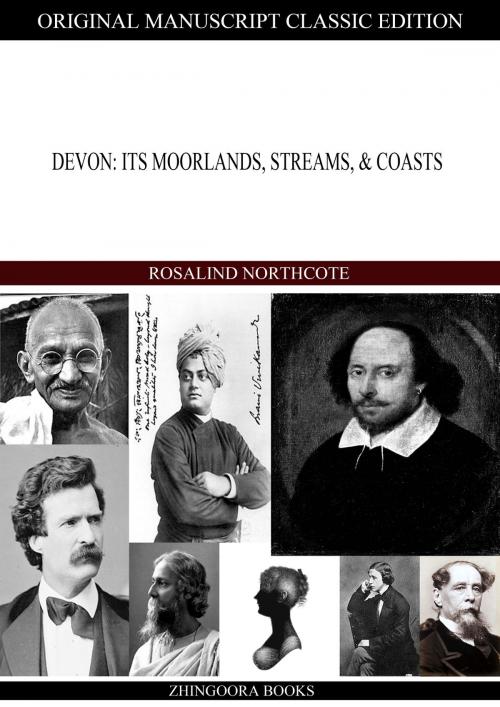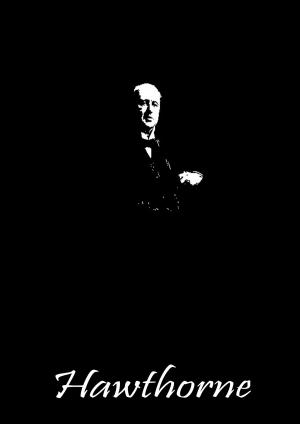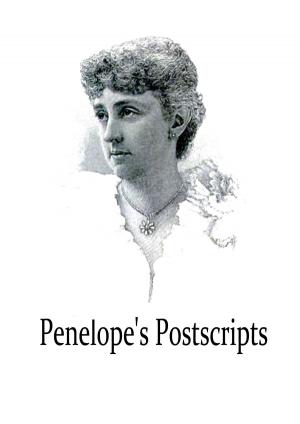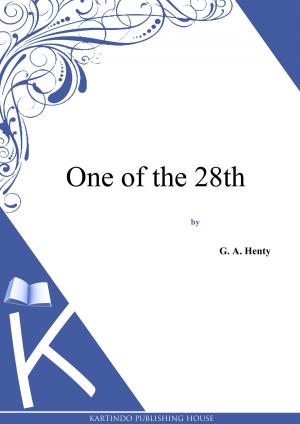| Author: | Rosalind Northcote | ISBN: | 1230000105568 |
| Publisher: | Zhingoora Books | Publication: | February 9, 2013 |
| Imprint: | Language: | English |
| Author: | Rosalind Northcote |
| ISBN: | 1230000105568 |
| Publisher: | Zhingoora Books |
| Publication: | February 9, 2013 |
| Imprint: | |
| Language: | English |
Preface
The first and one of the greatest difficulties to confront a writer who attempts any sort of description of a place or people is almost sure to be the answer to the question, How much must be left out? In the present case the problem has reappeared in every chapter, for Devon is 'a fair province,' as Prince says in his 'Worthies of Devon,' and 'the happy parent of ... a noble offspring.'
My position is that of a person who has been bidden to take from a great heap of precious stones as many as are needed to make one chain; for however grasping that person may be, and however long the chain may be made, when all the stones have been chosen, the heap will look almost as great and delightful as before: only a few of the largest and brightest jewels will be gone.
The fact that I have been able to take only a small handful from the vast hoard that constitutes the history of Devon will explain, I hope, the many omissions that must strike every reader who has any knowledge of the county—omissions of which no one can be more conscious than myself. A separate volume might very well be written about the bit of country touched on in each chapter.
This book does not pretend to include every district. I have merely passed through a great part of the county, stopping here at an old church with interesting monuments, there at a small town whose share in local history—in some instances, in the country's history—is apt to be forgotten, or at a manor-house[Pg viii] which should be remembered for its association with one of the many 'worthies' who, as Prince says—with the true impartiality of a West-countryman in regard to his own county—form 'an illustrious troop of heroes, as no other county in the kingdom, no other kingdom (in so small a tract) in Europe, in all respects, is able to match, much less excel.'
From the 'Tale of Two Swannes,' a view of the banks of the River Lea, published in 1590, I have ventured to borrow the verses that close an address 'To the Reader':
'To tell a Tale, and tell the Trueth withall,To write of waters, and with them of land,To tell of Rivers, where they rise and fall,To tell where Cities, Townes, and Castles stand,To tell their names, both old and newe,With other things that be most true,
'Argues a Tale that tendeth to some good,Argues a Tale that hath in it some reason,Argues a Tale, if it be understood,As looke the like, and you shall find it geason.If, when you reade, you find it so,Commend the worke and let it goe.'
Contents
Sonnet by Henry Newbolt
Preface
Chap. I. Exeter
II. The Exe
III. The Otter and the Axe
IV. Dartmoor
V. The Teign
VI. Torbay
VII. The Dart
VIII. Kingsbridge, Salcombe, and the South Hams
IX. The Three Towns
X. The Tamar and the Tavy
XI. The Taw and the Torridge
XII. Lundy, Lynmouth, and the Borders of Exmoor
XIII. Castles and Country-Houses
List of authorities consulted
Preface
The first and one of the greatest difficulties to confront a writer who attempts any sort of description of a place or people is almost sure to be the answer to the question, How much must be left out? In the present case the problem has reappeared in every chapter, for Devon is 'a fair province,' as Prince says in his 'Worthies of Devon,' and 'the happy parent of ... a noble offspring.'
My position is that of a person who has been bidden to take from a great heap of precious stones as many as are needed to make one chain; for however grasping that person may be, and however long the chain may be made, when all the stones have been chosen, the heap will look almost as great and delightful as before: only a few of the largest and brightest jewels will be gone.
The fact that I have been able to take only a small handful from the vast hoard that constitutes the history of Devon will explain, I hope, the many omissions that must strike every reader who has any knowledge of the county—omissions of which no one can be more conscious than myself. A separate volume might very well be written about the bit of country touched on in each chapter.
This book does not pretend to include every district. I have merely passed through a great part of the county, stopping here at an old church with interesting monuments, there at a small town whose share in local history—in some instances, in the country's history—is apt to be forgotten, or at a manor-house[Pg viii] which should be remembered for its association with one of the many 'worthies' who, as Prince says—with the true impartiality of a West-countryman in regard to his own county—form 'an illustrious troop of heroes, as no other county in the kingdom, no other kingdom (in so small a tract) in Europe, in all respects, is able to match, much less excel.'
From the 'Tale of Two Swannes,' a view of the banks of the River Lea, published in 1590, I have ventured to borrow the verses that close an address 'To the Reader':
'To tell a Tale, and tell the Trueth withall,To write of waters, and with them of land,To tell of Rivers, where they rise and fall,To tell where Cities, Townes, and Castles stand,To tell their names, both old and newe,With other things that be most true,
'Argues a Tale that tendeth to some good,Argues a Tale that hath in it some reason,Argues a Tale, if it be understood,As looke the like, and you shall find it geason.If, when you reade, you find it so,Commend the worke and let it goe.'
Contents
Sonnet by Henry Newbolt
Preface
Chap. I. Exeter
II. The Exe
III. The Otter and the Axe
IV. Dartmoor
V. The Teign
VI. Torbay
VII. The Dart
VIII. Kingsbridge, Salcombe, and the South Hams
IX. The Three Towns
X. The Tamar and the Tavy
XI. The Taw and the Torridge
XII. Lundy, Lynmouth, and the Borders of Exmoor
XIII. Castles and Country-Houses
List of authorities consulted















